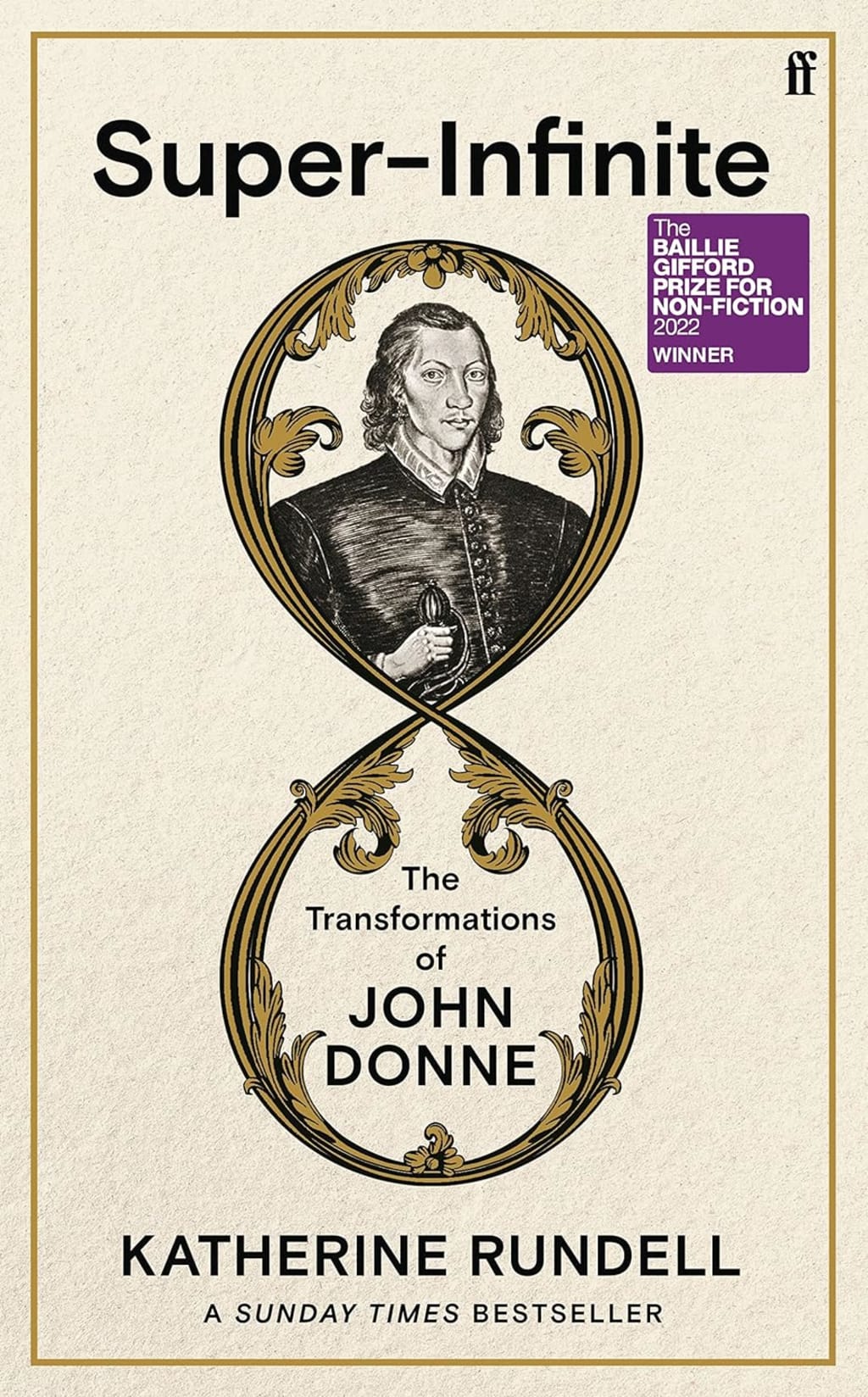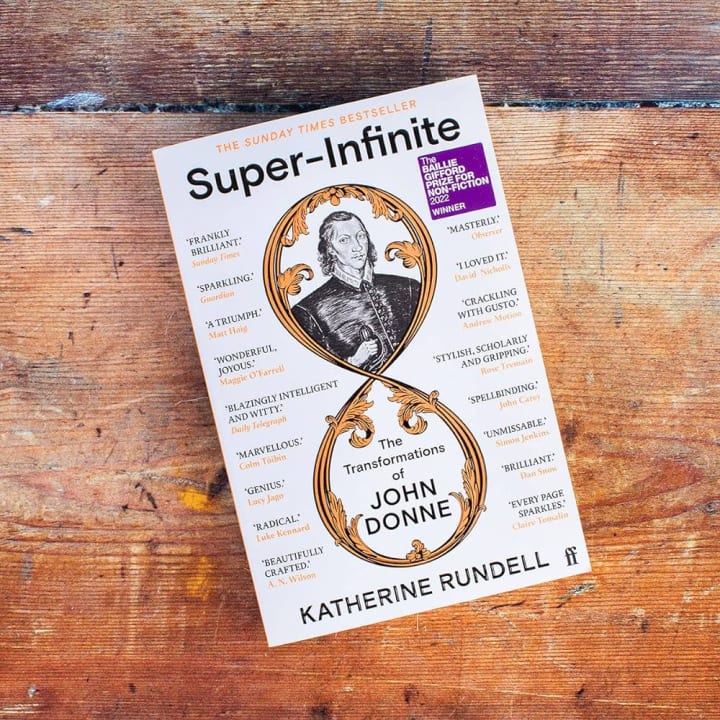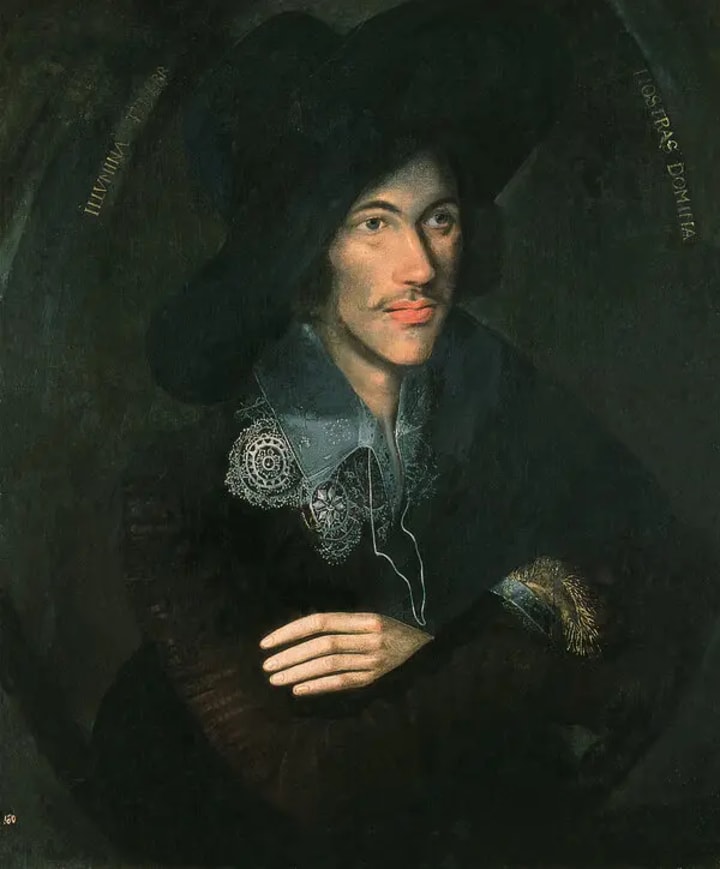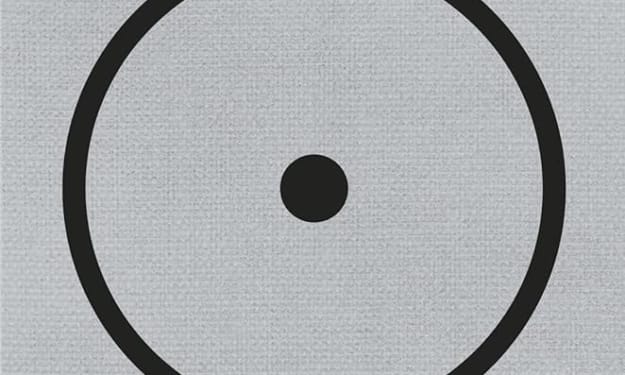Book Review: "Super-Infinite" by Katherine Rundell
5/5 - an adventure of the many identities of John Donne...

Full Title: Super-Infinite: The Transformations of John Donne by Katherine Rundell
“But there are elements of each of us so particular, unwieldy, so without cliché, that it is necessary for each poet to invent his own language. It is necessary for us all to do so; owning one’s own language is not an optional extra. The human soul is so ruthlessly original; the only way to express the distinctive pitch of one’s own heart is for each of us to build our own way of using our voice. To read Donne is to be told: kill the desire to keep the accent and tone of the time. It is necessary to shake language until it will express our own distinctive hesitations, peculiarities, our own uncertain and never-quite-successful yearning towards beauty. Donne saves his most ruthless scorn for those who chew other wits’ fruit, and shit out platitudes. Language, his poetry tells us, is a set, not of rules, but of possibilities.”
- Super-Infinite by Katherine Rundell
Now, I remember when I was a teenager and I was pretty interested in poetry. Apart from in class when we would study the metaphysicals (the poetry era John Donne was a part of), I took it upon myself to read further into Donne, purchasing a copy of his poetry without the others in it (sorry to Andrew Marvell who, it turns out, I actually enjoyed a little bit more as a poet). Donne's poetry is a vivid portrait of some of the strangest extended metaphors I've ever read and of course, some of the most intense emotional imagery I've ever seen. This biography covers his life in context of his poems, exploring how one connects with the other and perhaps, how his poetry is actually some kind of autobiography as it changes and morphs just as much as he does.
I think the thing I have to say I admired from the very beginning of the book is that the writer does not try to romanticise the life of John Donne, covering the many horrors that befell his family in his youth. Explaining that hiding in Oxford was the best option for him and his brother until all of a sudden, it wasn't. The chapter entitled Brother to a Dead Man makes it clear that there were some things that John Donne's own family preferred to keep clandestine in an era where their religion was not particular well-recieved. When John Donne's brother is found harbouring a Catholic priest, he is thrown in jail only to die in agony of plague a few days later. The boy was only nineteen.
Most likely, you will believe that this is the goriest this book gets upon the topic of John Donne's familial misfortune. In fact, later on in the book when the author covers the topic of the poet becoming a widow, we see that his wife spent the majority of her adult life in childbirth or recovering from it. She bore 12 children, many of whom did not survive and upon the 12th child, a stillborn - she went to the grave only a week later. John Donne is descriptively crushed and goes into this rather extravagant mourning. He states that he will never love again and ends up very depressed. Be that as it may, the book also suggests that he may not have been the best husband in the world - writing beautiful letters to, though no evidence of having an actual relationship with - other women.

Another point of the book I enjoyed was a chapter entitled The Ambivalent Father in which we see the poet thrust rather unwillingly, into fatherhood. Much like the chapter dedicated to Anne (his wife) earlier on, he is a somewhat bemused man upon this change in his life but unlike the chapter on Anne, fatherhood does not seem to be coming easily to him. The author writes quite descriptively about how Donne did not leave the house for some time and how his home had basically become a prison to him. The author refers to him as "suddenly human" (p.166) which I think is correct given the fact that this is probably the most emotional we have seen Donne throughout the text so far, even including the chapter where his brother dies in jail.
This emotion is laden with feelings of fatigue and yet, feels quite affectionate towards the prospect of having children. We will see this again when the author investigates how Donne once wrote about his dead children. It is filled with the same kind of exasperation riddled with a very human sorrow that was not expressed to any other person/character of the text. Not a single feeling of love, anger, resentment or religious obedience was anything like the contradictory but empathetic emotions he had towards his children. I think that though he may have been a flawed man, this is probably his most redeeming factor not as a father, but as a human being. He's showing the readers for once, that he is capable of these incredibly visceral emotions that later get investigated in the poetry he writes about his own death.

The book goes through many other aspects of John Donne's life that are just as important as his family and one of these things is his many identities. He was a clergyman, as we all know. But he was also a preacher, he once went and sailed upon the seas, he was also a rebel and a religious outsider, a scholar, an MP and the Dean of St Paul's Cathedral. Apart from this he was a father, a husband, a poet, a man of letters to high-born women, a failure in his court attempts and for some time he was suicidal. This book dedicates a chapter to each of those men and how they came to form the poet John Donne as we remember him today.
This is probably one of the best biographies of a poet I have read in a long time and definitely deserves to be one of the 'Books of the Year' for the TLS and many other respected newspapers. To say I completely devoured this book would be an understatement and though I probably should not have been to the bookstore to buy more books - I am glad I picked this one up. I have had an incredible experience with it and if you enjoy poetry and the works of John Donne, I am sure you will have a great experience with it as well. It is truly a great work of nonfiction.
About the Creator
Annie Kapur
200K+ Reads on Vocal.
Secondary English Teacher & Lecturer
🎓Literature & Writing (B.A)
🎓Film & Writing (M.A)
🎓Secondary English Education (PgDipEd) (QTS)
📍Birmingham, UK
X: @AnnieWithBooks
Enjoyed the story? Support the Creator.
Subscribe for free to receive all their stories in your feed. You could also pledge your support or give them a one-off tip, letting them know you appreciate their work.






Comments
There are no comments for this story
Be the first to respond and start the conversation.